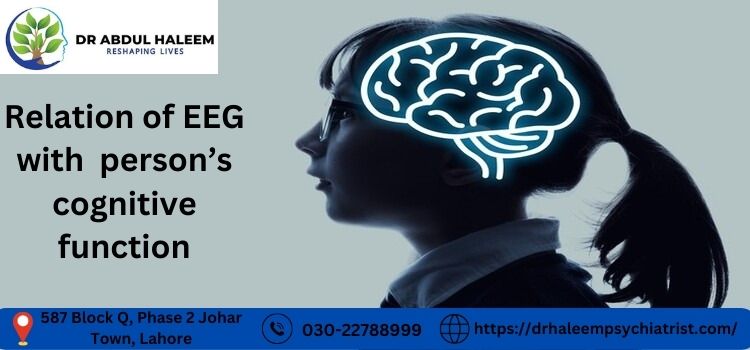EEG (electroencephalogram) is a medical technique used to monitor electric activity in the brain. In today’s post, we’ll explore what is EEG in various diseases and discuss why this method of analysis can be so useful for better diagnosing mental health issues.
It relies on electrodes attached to the scalp that detect electrical impulses emitted by neurons, allowing professionals to gain important insights into how certain neurological conditions affect your brain waves.
Read on to learn more about what information EEG can provide, how it’s being applied in specific cases, and just how reliable this tool is when it comes to evaluating your Total Brain Health.
What is EEG in various diseases?
EEG in various diseases is used to diagnose a broad range of neurological conditions, from epilepsy and Alzheimer’s disease to attention deficit hyperactivity disorder (ADHD) and other mental health issues. It can measure the electrical currents in the brain over time and detect any abnormal patterns, which helps medical professionals identify specific disorders.
Relation of EEG with person’s cognitive function

In addition, EEG can provide information on a person’s cognitive function, giving healthcare providers insights into the patient’s memory, attention span, and reaction time. This non-invasive procedure is often used alongside MRI scans and other tests to accurately diagnose neurological problems in children and adults alike.
Identifying early signs of Alzheimer’s through EEG
EEG is also being used to help identify early signs of Alzheimer’s before symptoms become severe. By monitoring changes in electrical activity, healthcare providers can detect subtle cognitive decline before it begins to affect a person’s daily life. This can enable earlier diagnosis and treatment, which could potentially improve a person’s quality of life.
Finally, EEG is also being used to study the effects of medications on neurological conditions. By comparing changes in brain activity before and after taking certain medications, doctors can determine if a particular drug is effective or not. This can help them develop personalized treatment plans for their patients.
What are the different types of EEG?
The type of EEG used to diagnose a particular condition depends on the patient’s age and the symptoms being monitored. In general, there are three main types of EEG that medical professionals use:
1. Routine EEG:
This is the most common type of EEG and it involves placing electrodes on a person’s scalp for 30 minutes or more. During this time, medical professionals will look for patterns in the brain waves that could indicate a neurological disorder or other issue.
2. Ambulatory EEG:
This type of EEG is used to measure brain activity over an extended period of time (usually up to 24 hours). The patient wears a portable device with electrodes attached at various points on their scalp and it records their brain activity as they go about their day. This allows medical professionals to pinpoint the exact times when a person’s symptoms are more severe or less noticeable.
3. Sleep EEG:
This type of EEG is used to measure electrical activity in the brain during sleep, which can help doctors diagnose and treat conditions like sleep apnea or narcolepsy.
How reliable is EEG?
EEG is generally considered to be a very reliable tool for diagnosing neurological issues. It has been used in healthcare for more than 100 years and the technology continues to advance, making it even more accurate.
At the same time, EEG cannot provide definitive answers about a person’s mental health. It is not a substitute for psychological testing and other methods of diagnosis. It should be used alongside these other techniques to gain the most comprehensive view of a patient’s mental health.
How can I increase the accuracy of my EEG results?
Accurate EEG readings are essential for properly diagnosing any neurological condition. To ensure your results are as precise as possible, make sure you follow all instructions given by your healthcare provider before and during your EEG session. This includes avoiding caffeine and alcohol on the day of your test and refraining from taking certain medications, such as sleep aids or muscle relaxers.
It’s also important to stay still while your EEG is being recorded; any movement may interfere with the accuracy of the results. Finally, make sure to talk to your healthcare provider about any questions or concerns you have regarding your EEG session. By doing so, you can ensure that your results are as accurate and reliable as possible.
EEG test side effects
Though EEG tests are generally considered safe, some people may experience minor side effects such as skin irritation or discomfort from the electrodes. These symptoms should resolve shortly after the test is completed. Additionally, sedatives may be used during certain types of EEG tests, which can cause drowsiness and dizziness afterwards.
It’s important to note that EEG tests do not emit any radiation or cause any lasting effects. If you have any concerns about the safety of your EEG test, be sure to discuss them with your healthcare provider before your appointment.
Overall, EEG tests are an invaluable tool for diagnosing and monitoring neurological conditions; however, it’s important to understand how they work and what potential side effects may occur so that you can make informed decisions about your Total Brain Health. With the right preparation and knowledge, you can ensure that your results are as accurate and reliable as possible.
When an EEG is used?
EEG is typically used to diagnose epilepsy, Alzheimer’s disease, ADHD, and a range of other neurological conditions. It can also be used to measure changes in mental states such as depression or anxiety and evaluate cognitive abilities like memory and problem-solving skills. EEG is often combined with other tests such as MRI scans to provide an accurate diagnosis. Additionally, it can be used to identify early signs of Alzheimer’s before symptoms become severe and measure the effectiveness of certain drug treatments.
Overall, EEG is a powerful tool for diagnosing and monitoring neurological conditions, allowing healthcare providers to customize treatments based on a patient’s individual needs. By understanding what an EEG test is and how it works, you can make more informed decisions regarding your Total Brain Health.
How an EEG is carried out?
An EEG is typically performed in a healthcare provider’s office or hospital. During the procedure, small metal discs (electrodes) are attached to the patient’s scalp and connected to an amplifier. The electrodes detect electrical activity in the brain and send signals to the amplifier, which displays them on a computer screen.
The test takes 30-60 minutes and is generally painless; however, some people may experience slight irritation from the electrodes. In certain cases, professionals uses sedatives to reduce anxiety or help the patient stay still during the test. Afterwards, healthcare providers will analyze the results to make a diagnosis or monitor changes in mental state.
By understanding what an EEG is and how it works, you can be more prepared for your procedure and ensure that your results are as accurate as possible.
Understanding EEG is an important part of managing Total Brain Health. By familiarizing yourself with the basics of EEG technology and how it works, you can make informed decisions regarding your neurological care and optimize your quality of life.
Conclusion
The question that most of the patients asks is what is EEG in various diseases? EEG is an extremely powerful tool for diagnosing neurological conditions and gauging mental health.
With the right preparation and understanding of what EEG tests involve, you can ensure that your results are as accurate as possible. Ultimately, by knowing the basics of EEG technology and its applications in neurological care, you can make informed decisions regarding your Total Brain Health.
FAQs
Frequently asked question by peoples.
Can I sleep with an EEG?
Yes, you can sleep with an EEG. Most EEG’s are performed while the patient is asleep to capture brain activity during this natural state. In some cases, a sedative may be administered to help the patient relax and stay still during the procedure.
What are the rules before an EEG?
Before an EEG, it is important to follow all instructions given by your healthcare provider. This may include avoiding caffeine and alcohol on the day of the test and refraining from taking certain medications, such as sleep aids or muscle relaxers.
Can EEG detect brain damage?
Yes, EEG can detect brain damage. By measuring electrical activity in the brain over time, it can provide valuable information about the cause and effects of certain disorders, allowing healthcare providers to develop personalized treatment plans.
What is the biggest weakness of EEG?
The biggest weakness of EEG is that the results may not be as accurate in people with certain medical conditions, such as Alzheimer’s and Parkinson’s.
Which is better EEG or MRI?
The answer to this question depends on the individual case. In some cases, an EEG may provide more accurate results than an MRI scan; however, in other cases, an MRI may be more beneficial. Ultimately, it is important to discuss your options with your healthcare provider and decide which test would be best for you.
Is an EEG expensive?
The cost of an EEG varies depending on the type of test being performed and the patient’s insurance coverage. Generally, most healthcare providers will accept major insurance plans for EEG procedures. However, it is important to contact your provider beforehand to ensure that you understand your coverage and any out-of-pocket costs.
How long do EEG results take?
The amount of time it takes to receive EEG results depends on the type of test being performed and the complexity of the case. Generally, most EEG’s are completed within a few days; however, in some cases, it can take up to two weeks to get the final results.
Can an EEG be wrong?
Yes, an EEG can be wrong. In some cases, the electrodes may not be properly placed on the scalp or the results may be affected by outside noise or electrical interference.
Can I eat before EEG test?
Yes, you can eat before an EEG test. However, it is important to follow your healthcare provider’s instructions and avoid certain foods and drinks on the day of the test. Generally, dietary restrictions include avoiding caffeine, alcohol, and other substances that may affect brain activity.


